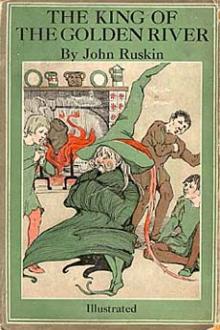Vixen, Volume I - Mary Elizabeth Braddon (simple e reader .TXT) 📗

- Author: Mary Elizabeth Braddon
Book online «Vixen, Volume I - Mary Elizabeth Braddon (simple e reader .TXT) 📗». Author Mary Elizabeth Braddon
"The orchids made the hit of the evening," Rorie said afterwards. "It was their coming of age, not mine."
There was a moderate and endurable amount of speechifying by-and-by, when the monster double-crowned pines had been cut, and the purple grapes, almost as big as pigeons' eggs, had gone round.
The Duke of Dovedale assured his friends that this was one of the proudest moments of his life, and that if Providence had permitted a son of his own to attain his majority, he, the Duke, could have hardly felt a deeper interest in the occasion than he felt to-day. He had--arra--arra--known this young man from childhood, and had--er--um--never found him guilty of a mean action--or--arra--discovered in him a thought unworthy of an English gentleman.
This last was felt to be a strong point, as it implied that an English gentleman must needs be much better than any other gentleman.
A continental gentleman might, of course, be guilty of an unworthy thought and yet pass current, according to the loose morality of his nation. But the English article must be flawless.
And thus the Duke meandered on for five minutes or so, and there was a subdued gush of approval, and then an uncomfortable little pause, and then Rorie rose in his place, next to the Duchess, and returned thanks.
He told them all how fond he was of them and the soil that bred them. How he meant to be a Hampshire squire, pure and simple, if he could. How he had no higher ambition than to be useful and to do good in this little spot of England which Providence had given him for his inheritance. How, if he should go into Parliament by-and-by, as he had some thoughts of attempting to do, it would be in their interests that he would join that noble body of legislators; that it would be they and their benefit he would have always nearest his heart.
"There is not a tree in the Forest that I do not love," cried Rorie, fired with his theme, and forgetting to stammer; "and I believe there is not a tree, from the Twelve Apostles to the Knightwood Oak, or a patch of gorse from Picket Post to Stony Cross, that I do not know as well as I know the friends round me to-night. I was born in the Forest, and may I live and die and be buried here. I have just come back from seeing some of the finest scenery in Europe; yet, without blushing for my want of poetry, I will confess that the awful grandeur of those snow-clad mountains did not touch my heart so deeply as our beechen glades and primrose-carpeted bottoms close at home." There was a burst of applause after Rorie's speech that made all the orchids shiver, and nearly annihilated a thirty-guinea _Odontoglossum Vexillarium_. His talk about the Forest, irrelevant as it might be, went home to the hearts of the neighbouring landowners. But, by-and-by, in the drawing-room, when he rejoined his cousin, he found that fastidious young lady by no means complimentary.
"Your speech would have been capital half a century ago, Rorie," she said, "and you don't arra--arra--as poor papa does, which is something to be thankful for; but all that talk about the Forest seemed to be an anachronism. People are not rooted in their native soil nowadays, as they used to be in the old stage-coach times, when it was a long day's journey to London. One might as well be a vegetable at once if one is to be pinned down to one particular spot of earth. Why, the Twelve Apostles," exclaimed Mabel, innocent of irreverence, for she meant certain ancient and fast-decaying oaks so named, "see as much of life as your fine old English gentleman. Men have wider ideas nowadays. The world is hardly big enough for their ambition."
"I would rather live in a field, and strike my roots deep down like one of those trees, than be a homeless nomad with a world-wide ambition," answered Rorie. "I have a passion for home."
"Then I wonder you spend so little time in it."
"Oh, I don't mean a home inside four walls. The Forest is my home, and Briarwood is no dearer to me than any other spot in it."
"Not so dear as the Abbey House, perhaps?"
"Well, no. I confess that fine old Tudor mansion pleases me better than this abode of straight lines and French windows, plate glass and gilt mouldings."
They sat side by side upon the amber ottoman, Rorie with Mabel's blue feather fan in his hand, twirling and twisting it as he talked, and doing more damage to that elegant article in a quarter of an hour than a twelvemonth's legitimate usage would have done. People, looking at the pretty pair, smiled significantly, and concluded that it would be a match, and went home and told less privileged people about the evident attachment between the Duke's daughter and the young commoner. But Rorie was not strongly drawn towards his cousin this evening. It seemed to him that she was growing more and more of a paragon; and he hated paragons.
She played presently, and afterwards sang some French _chansons_. Both playing and singing were perfect of their kind. Rorie did not understand Chopin, and thought there was a good deal of unnecessary hopping about the piano in that sort of thing--nothing concrete, or that came to a focus; a succession of airy meanderings, a fairy dance in the treble, a goblin hunt in the bass. But the French _chansons_, the dainty little melodies with words of infantile innocence, all about leaves and buds, and birds'-nests and butterflies, pleased him infinitely. He hung over the piano with an enraptured air; and again his friends made note of his subjugation, and registered the fact for future discussion.
CHAPTER VI.
How she took the News.
It was past midnight when the Tempest carriage drove through the dark rhododendron shrubberies up to the old Tudor porch. There was a great pile of logs burning in the hall, giving the home-comers cheery welcome. There was an antique silver spirit stand with its accompaniments on one little table for the Squire, and there was another little table on the opposite side of the hearth for Mrs. Tempest, with a dainty tea-service sparkling and shining in the red glow.
A glance at these arrangements would have told you that there were old servants at the Abbey House, servants who knew their master's and mistress's ways, and for whom service was more or less a labour of love.
"How nice," said the lady, with a contented sigh. "Pauline has thought of my cup of tea."
"And Forbes has not forgotten my soda-water," remarked the Squire.
He said nothing about the brandy, which he was pouring into the tall glass with a liberal hand.
Pauline came to take off her mistress's cloak, and was praised for her thoughtfulness about the tea, and then dismissed for the night.
The Squire liked to stretch his legs before his own fireside after dining out; and with the Squire, as with Mr. Squeers, the leg-stretching process involved the leisurely consumption of a good deal of brandy and water.
Mr. and Mrs. Tempest talked over the Briarwood dinner-party, and arrived--with perfect good nature--at the conclusion that it had been a failure.
"The dinner was excellent," said the Squire, "but the wine went round too slow; my glasses were empty half the time. That's always the way when you've a woman at the helm. She never fills her cellars properly, or trusts her butler thoroughly."
"The dresses were lovely," said Mrs. Tempest, "but everyone looked bored. How did you like my dress, Edward? I think it's rather good style. Theodore will charge me horribly for it, I daresay."
"I don't know much about your dress, Pam, but you were the prettiest woman in the room."
"Oh Edward, at my age!" exclaimed Mrs. Tempest, with a pleased look, "when there was that lovely Lady Mabel Ashbourne."
"Do you call her lovely?--I don't. Lips too thin; waist too slim; too much blood, and too little flesh."
"Oh, but surely, Edward, she is grace itself; quite an ethereal creature. If Violet had more of that relined air----"
"Heaven forbid. Vixen is worth twenty such fine-drawn misses. Lady Mabel has been spoiled by over-training."
"Roderick is evidently in love with her," suggested Mrs. Tempest, pouring out another cup of tea.
The clocks had just struck two, the household was at rest, the logs blazed and cracked merrily, the red light shining on those mail-clad effigies in the corners, lighting up helm and hauberk, glancing on greaves and gauntlets. It was an hour of repose and gossip which the Squire dearly loved.
Hush! what is this creeping softly down the old oak staircase? A slender white figure with cloudy hair; a small pale face, and two dark eyes shining with excitement; little feet in black velvet slippers tripping lightly upon the polished oak.
Is it a ghost? No; ghosts are noiseless, and those little slippers descend from stair to stair with a gentle pit-a-pit.
"Bless my soul and body!" cried the Squire; "what's this?"
A gush of girlish laughter was his only answer.
"Vixen!"
"Did you take me for a ghost, papa?" cried Violet, descending the last five stairs with a flying leap, and then, bounding across the hall to perch, light as a bird, upon her father's knee. "Did I really frighten you? Did you think the good old Abbey House was going to set up a family ghost; a white lady, with a dismal history of a broken heart? You darling papa! I hope you took me for a ghost!"
"Well, upon my word, you know, Vixen, I was just the least bit staggered. Your little white figure looked like something uncanny against the black oak balustrades, half in light, half in shadow."
"How nice!" exclaimed Violet.
"But, my dear Violet, what can have induced you to come downstairs at such an hour?" ejaculated Mrs. Tempest in an aggrieved voice.
"I want to hear all about the party, mamma," answered Vixen coaxingly. "Do you think I could sleep a wink on the night of Rorie's coming of age? I heard the joy-bells ringing in my ears all night."
"That was very ridiculous." said Mrs. Tempest, "for there were no joy-bells after eleven o'clock yesterday."
"But they rang all the same, mamma. It was no use burying my head in the pillows; those bells only rang the louder. Ding-dong, ding-dong, dell, Rorie's come of age; ding-dong, dell, Rorie's twenty-one. Then I thought of the speeches that would be made, and I fancied I could hear Rorie speaking. Did he make a good speech, papa?"
"Capital, Vix; the only one that was worth hearing!"
"I am so glad! And did he look handsome while he was speaking? I think the Swiss sunshine has rather over-cooked him, you know; but he is not unbecomingly brown."
"He looked as handsome a young fellow as you need wish to set eyes on."
"My dear Edward," remonstrated Mrs. Tempest, languidly, too thoroughly contented with herself to be seriously vexed about anything, "do you think it is quite wise of you to encourage Violet in that kind of talk?"
"Why should she not talk of him? She never had a brother, and he stands in the place of one to her. Isn't Rorie the same to you as an elder brother, Vix?"
The girl's head was on her father's shoulder, one slim





Comments (0)